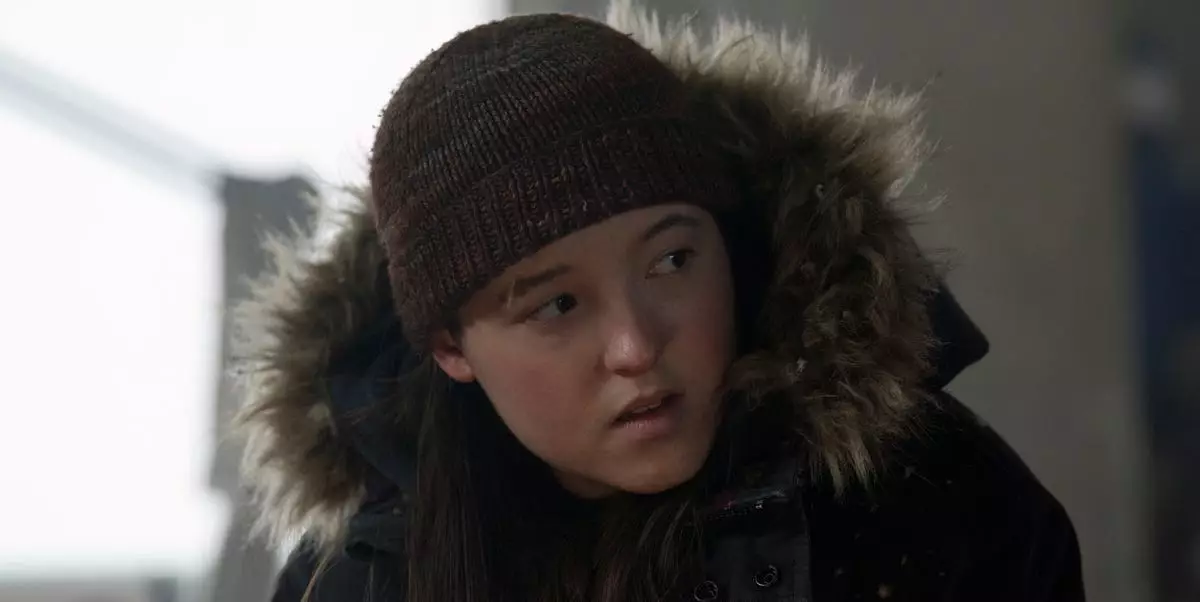In storytelling, music often serves as more than mere background noise; it can convey emotions that visuals and dialogue alone might struggle to express. This is abundantly clear in an emotionally charged sequence from HBO’s adaptation of *The Last of Us*, particularly in the gripping second episode of its latest season where the song “Through the Valley” takes center stage. Performed by Ashley Johnson, the original voice actress of Ellie, this acoustic ballad adds profound depth as it plays during a moment of deep mourning and existential despair following the loss of Joel, Ellie’s father figure. This paragon of powerful narrative artistry transforms the experience from a mere viewing to a cathartic journey through grief.
The choice to incorporate Johnson’s haunting vocals is not incidental; it represents a layered complexity that resonates deeply with audiences. Her dual role—as both the voice of Ellie and Ellie’s mother—cloaks the moment with a poignant nostalgia, reminding viewers of the intricate relationships built throughout the series. The emotional weight of the episode is heightened when viewers realize that the pain and love expressed through the song connects generations within the narrative, giving it an added layer of heartache.
A Symbol of Loss and Connection
“Through the Valley,” a song by Shawn James, strikes a chord with the underlying themes of *The Last of Us*. The series, which explores love, survival, and the human condition in a post-apocalyptic world, uses Johnson’s rendition to examine the depths of Ellie’s despair. As she mourns Joel amidst chaos, the song amplifies her emotional state—reflecting the journey of loss and the hollow ache it leaves behind. The choice to lead the audience through this poignant moment with music instead of dialogue solidifies the gravity of her situation, showcasing how art can condense complex feelings into simple, yet impactful, expressions.
For anyone who has experienced loss, Ellie’s grappling with grief becomes a universal narrative. In the aftermath of tragedy, a longing for connection becomes palpable, making her struggle resonate with viewers on a deeply personal level. The poignant juxtaposition of disaster and the fragile beauty of the song encapsulates the duality of the human experience—the devastating realities of the world around us can often coexist with deeply felt love between individuals.
The Evolution of Ashley Johnson’s Character
The inclusion of Ashley Johnson as Ellie’s mother during a previous season echoes throughout the narrative and serves to enhance the thematic resonance of the moment further. When viewers first encountered her character, the circumstances of Ellie’s birth became a tragic foreshadowing of the loss to come. In this episode, Johnson’s voice acts as a haunting reminder of the generational cycle of survival and love woven into the fabric of the series.
The layered depth of her dual portrayals and the emotional weight of their respective journeys highlight *The Last of Us*’s understanding of family and sacrifice. By blending her live-action role with her musical contribution, the series poignantly illustrates how love persists even amidst the wreckage of their world. The song is not just a mourning of Joel’s death; it’s a lamentation of everything that was lost—not just physically, but within the fabric of Ellie’s identity.
A Deeper Commentary on Survival and Solitude
While the episode features an intense focus on personal loss, it is also an exploration of survival in a world that constantly tests the limits of human resilience. Through this bleak lens, the song reflects a harsh reality: survival often necessitates sacrifice, and at times, the very act of survival can be a curse rather than a blessing. Ellie’s journey interweaves a complex tapestry of grief and endurance, reminding viewers that with each survival, pain often follows closely behind.
The stark visuals of the episode, coupled with the heart-wrenching ballad, create an atmosphere where hope feels both present yet subdued. While Ellie survives the immediate threat, the psychological burden of her experiences shadows her path ahead. The series doesn’t shy away from portraying this reality; rather, it embraces it, allowing audiences to engage with the complexities of despair and hope intertwined.
As *The Last of Us* unfolds, it is evident that the creators are not merely telling a story about a world ravaged by infection but about the relationships that define humanity amidst devastation. Through nuanced character development and evocative musical moments like “Through the Valley,” the series paints an emotional landscape that stays with audiences long after the credits roll.

